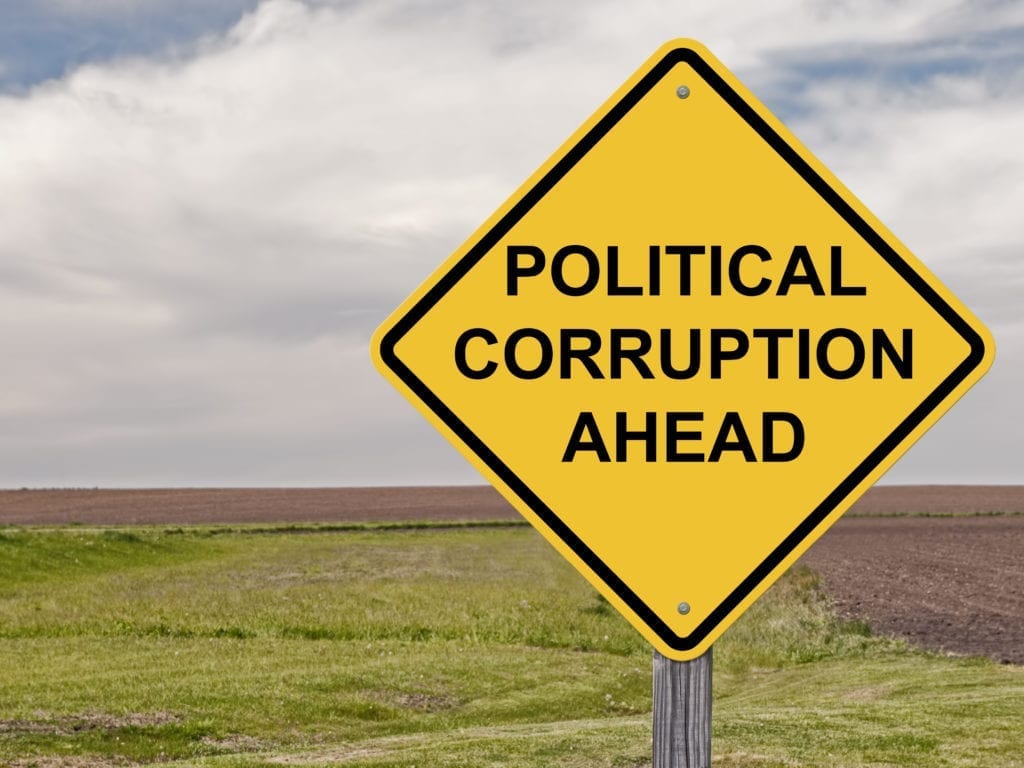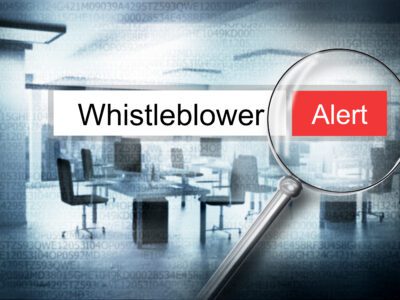BRIAN J GRABER LLC is an Ethics Act retaliation lawyer representing workers employed by the State of Illinois who are retaliated against in violation of the Ethics Act – Whistleblower Protection provisions. The Illinois State Officials and Employees Ethics Act, (Ethics Act), 5 ILCS 430/1-1 et seq., whistleblower protection provisions protect workers employed by the State of Illinois from retaliation for engaging in certain protected activities exposing violations of laws, rules, or regulations.

Courts have held the purpose of the Ethics Act’s Whistleblower Protections provisions is as follows:
. . . keeping government efficient and honest depends on the viligence of those most involved in its day-to-day operations, its employees. Those employees, however, are unlikely to step forward and speak out unless they are assured that they will not be the target of retribution by their coworkers and supervisors. In our view it is no better to permit state resources towards allowing improper retaliation against a state employee and the defense of such impropriety than spending those resources to prevent such behavior through a punitive damages award.
Crowley v. Watson, 401 Ill. Dec. 876, 889 (Ill. App. Ct. 2016).
If you believe that the State of Illinois retaliated against you for engaging in protected activity under the Ethics Act -Whistleblower Protections provisions, contact BRIAN J GRABER LLC an Ethics Act retaliation lawyer at (312) 291-4648 or by email to schedule a free confidential consultation.

Retaliation
The Ethics Act Whistleblower Protection provisions define “retaliatory action” broadly as follows:
“Retaliatory action” means the reprimand, discharge, suspension, demotion, denial of promotion, or transfer, or change in the terms or conditions of employment of any State employee, that is taken in retaliation for a State employee’s involvment in protected activity, as set forth in 5 ILCS 430/15-10.
State Officials and Employee Ethics Act (Ethics Act), 5 ILCS 430/15-5.
If you believe that the State of Illinois retaliated against you in violation of your rights under the Ethics Act, contact BRIAN J GRABER LLC an Ethics Act retaliation lawyer at (312) 291-4648 or by email to schedule a free confidential consultation.
Protected Activity
Under the Ethics Act, 5 ILCS 430/15-10, an officer, a member, a State employee, or a State Agency shall not take any retaliatory action against a State employee because the State employee does any of the following:
- Discloses or threatens to disclose to a supervisor or to a public body an activity, policy, or practice of any officer, member, State agency, or other State employee that the State employee reasonably believes is a violation of a law, rule, or regulation.
- Provides infromation to or testifies before a public body conducting an investigation, hearing, or inquiry into any violation of a law, rule, or regulation by any officer, member, State Agency, or other State employee.
- Assists or participates in a proceeding to enforce the provisions of this Act.
A State employee can engage in protected activity by disclosing or threatening to disclose to a supervisor or to a public body any activity, policy, or practice of any State employee reasonably believed to violate a law, rule, or regulation. The terms “supervisor” and “public body” have very specific meanings.
The term “supervisor” as used in the Ethics Act, 5 ILCS 430/15-10 has a very specific meaning as follows:
“Supervisor” means an officer, a member, or a State employee who has the authority to direct and control the work performance of a State employee or who has authority to take corrective action regarding any violation of a law, rule, or regulation of which the State employee complains.
State Officials and Employee Ethics Act (Ethics Act), 5 ILCS 430/15-5.

Therefore, any State employee must disclose or threaten to disclose any activity, policy, or practice of any state employee to his or her supervisor as defined by 5 ILCS 430/15-5 in order to engage in protected activity.
Under the Ethics Act, 5 ILCS 430/15-5, the term “public body” has a very specific meaning:
- any officer, member, or State agency;
- the federal government;
- any local law enforcement agency or prosecutorial office; and
- any officer, employee, department, agency, or other division of any of the foregoing.

If you believe that your employer retaliated against you for engaging in protected activity under the Ethics Act, contract BRIAN J GRABER LLC an Ethics Act retaliation lawyer at (312) 291-4648 or by email to schedule a free confidential consultation.
Report Violations of the Law to Public Bodies
Here is a shortlist of public bodies that State employees can report what they reasonably believe to be violations of the laws, rules, and regulations to engage in protected activity under the Ethics Act, 5 ILCS 430/15-10:
- Office of the Executive Inspector General for the Agencies of the Illinois Governor;
- Office of the Executive Inspector General for the Illinois Attorney General;
- Office of the Legislative Inspector General;
- Illinois State Police Division of Criminal Investigation;
- FBI Chicago Public Corruption;
- U.S. Attorney’s Chicago Office.
Burden of Proof
Under the Ethics Act, 5 ILCS 430/15-20 a State employee has the burden of proving each of the following elements:
- that the State employee engaged in protected activity as described above in 5 ILCS 430/15-10; and
- that conduct was a contributing factor in the retaliatory action alleged by the State employee.
“Contributing factor” is the standard of causation and has been referred to as follows:
A “contributing factor” refers to something less than a substantial or motivating factor. A contributing factor is any factor, which alone or in combintation with other factors, tends to affect in any way the outcome of the decision.
Wynn v. Ill. Dep.’t of Human Servs., 81 N.E. 3d 28, 39 (Ill. App. Ct. 2017).
If a State employee can meet this burden of proof under the Ethics Act, he or she may be entitled to damages unless the State employer can demonstrate by clear and convincing evidence that the officer, member, other State employee, or State agency would have taken the same unfavorable personnel action in the absence of the conduct. See 5 ILCS 430/15-20.
The State employer’s burden of “clear and convincing evidence” has been defined as follows:
Courts have defined clear and convincing evidence as the degree of proof that leaves no reasonable doubt in the mind of the fact finder as to the truth of the proposition in question. Clear and convicing evidence requires more proof than a preponderance while not quite approaching the most difficult level of proof necessary to convict a person of a criminal offense.
Wynn v. Ill. Dep.’t of Human Servs., 81 N.E. 3d 28, 42 (Ill. App. Ct. 2017).
If you believe that your employer retaliated against you in violation of your rights under the Ethics Act, contact BRIAN J GRABER LLC an Ethics Act retaliation lawyer at (312) 291-4648 or by email to schedule a free confidential consultation.
Remedies for Retaliation
Under the Ethics Act’s Whistleblower provisions, 5 ILCS 430/15-25 the State employee may be awarded all remedies necessary to make the State employee whole and to prevent future violations of this Article. Remedies imposed by the court may include, but are not limited to the following:
- reinstatement of the employee to either the same position held before the retaliatory action or to an equivalent position;
- 2 times the amount of the back pay;
- interest on the back pay;
- reinstatment of full fringe benefits and senority rights; and
- the payment of reasonable costs and attorneys’ fees.

In Crowley v. Watson, 401 Ill. Dec. 876 (Ill. App. Ct. 2016) the court upheld a $2,000,000.00 punitive damages award against the defendants holding as follows:
Given the clear language of the Ethics Act providing for remedies to deter future violations, and reading that language together with the waiver of sovereign immunity in the Immunity Act, we conclude the award of punitive damages against the defendants in this case was statutority permissible.
Crowley v. Watson, 401 Ill. Dec. 876, 889 (Ill. App. Ct. 2016).
If you believe your employer violated your rights under the Ethics Act, contact BRIAN J GRABER LLC an Ethics Act retaliation lawyer at (312) 291-4648 or by email to schedule a free confidential consultation.
Estimated reading time: 7 minutes
Key Takeaways
- BRIAN J GRABER LLC specializes in representing workers facing retaliation under the Ethics Act Whistleblower Protections in Illinois.
- The Ethics Act protects employees from retaliation for disclosing violations of laws and other protected activities.
- State employees can report violations to various public bodies, including the Office of the Executive Inspector General.
- Affected employees may seek remedies such as reinstatement, back pay, and attorney’s fees if they prove retaliation occurred.
- Contact BRIAN J GRABER LLC for a confidential consultation if you believe your rights under the Ethics Act have been violated.
